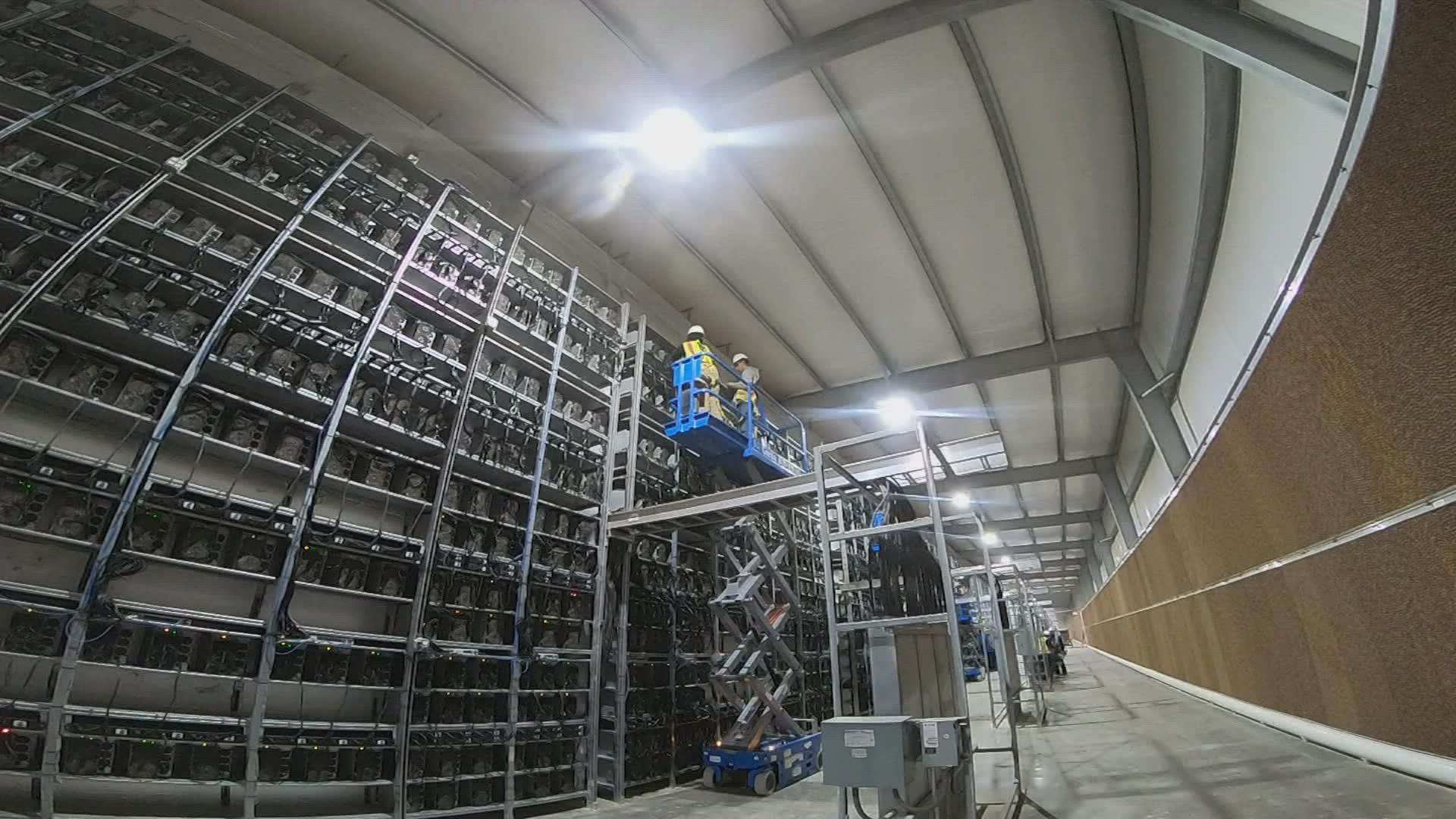HOUSTON — Call it a digital gold rush.
Cryptocurrency mining companies are flocking to Texas for its business-friendly regulations and cheap electricity. But the surge in power use from the mining migration is raising questions about whether the ERCOT grid can handle the bitcoin boom.
About an hour northeast of Austin, football field-sized warehouses house the largest bitcoin mining plant in North America, the Riot Blockchain Whinstone data center.
Inside, floor-to-ceiling racks of computers blink and buzz around the clock crunching algorithmic code. They’re competing with other mining machines from around the world to be the first to solve a series of complex math problems. Those equations help to verify bitcoin transactions on a digital ledger known as the blockchain. When the transactions are validated, miners are rewarded with new bitcoin.
“There’s about 100,000 machines running out there,” said Whinstone CEO Chad Harris.
MORE: KHOU 11 Investigates
Harris said the plant can mine about 400 bitcoin a month, worth about $25 million. The 100-acre facility was built next to abandoned aluminum for its easy access to the Texas power grid and since spring, it’s gotten bigger by the day.
“We immediately started on a 400-megawatt expansion adding four additional buildings,” Harris said. “When we finish we’ll be at 700 megawatts.”
Cryptomining competition is fierce
Just across the road, another cryptocurrency miner, Bitdeer owns another 700-megawatt mining facility. At capacity, the two plants alone will use enough electricity to power about 280,000 homes.
And the bitcoin mining rush doesn’t end there.
“We’re getting a couple of calls a week, and that’s gone on for about the last three months,” said John King, mayor of nearby Rockdale.
King said his small town has been receiving calls from companies in China after a recent ban on cryptomining in that country. The Chinese government declared the activity illegal amid concerns of not controlling the decentralized currency.
“They’re very serious,” King said. “They have anywhere from $30 to $100 million that they can spend on getting operational.”
Texas has rolled out the welcome mat for cryptominers from Gov. Greg Abbott himself, who has tweeted “Texas is becoming a mecca for bitcoin miners ..."
“Texas is open for crypto business ..."
and “Texas will be the crypto leader.”
'They are energy hogs'
But as more cryptominers plug into the Texas grid, all that glitters may not be digital gold.
“They are energy hogs, absolutely,” said Michelle Michot Foss, a fellow in the Center for Energy Studies at Rice University’s Baker Institute.
“I don't think that in Texas, we've actually done a bad job in terms of anticipating growth, I think where we've missed it is in understanding the sensitivity of the system to break downs,” Michot Foss said. “And when you’ve got much larger load building at the same time, then the chance for disruptions is there.”
Is ERCOT ready for the digital gold rush?
Those potential disruptions are on the radar of the state’s power grid manager, the Electric Reliability Council of Texas.
“ERCOT is monitoring cryptomining developments and evaluating the potential impacts on the grid,” an ERCOT spokesperson said. “It is fair to say that these crypto loads can have impacts just like any large load.”
But during times of high electricity demand, Whinstone CEO Harris said the energy-guzzling plant goes dark, as part of a concerted effort to be a good corporate citizen.
“We actually turn off, we turn the whole place off,” he said. “It’s part of our business plan, our business plan is to support the grid when necessary.”
The other part of that business plan is getting paid to shut down. At peak demand, Whinstone can sell unused power back to the grid for more than what it paid. The question going forward is will other cryptominers do the same, or will they keep the computers running to cash in on more bitcoin.
“I think in every industry there’s people that don’t behave correctly,” Harris said. “I think our job is to, again, set the standard and hold everybody accountable.”

